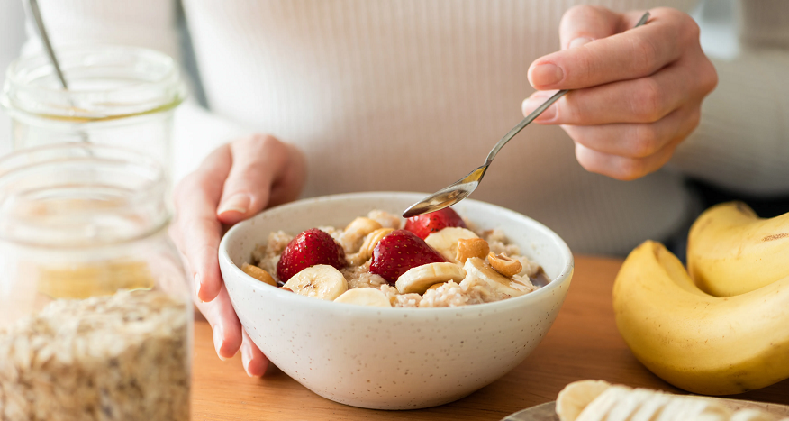
“Breakfast is the most important meal of the day” – a phrase we’ve all heard time and again. But how much truth does this age-old saying hold? In our fast-paced world, the role of breakfast is often understated, overlooked, or even skipped entirely. Here we examine the concept of breakfast, unraveling its historical roots, nutritional significance, and its impact on our physical and mental well-being. We explore the myriad ways breakfast influences our daily lives, debunk common myths, and provide practical advice for making this meal not just important, but also enjoyable.
Contents
Historical Perspective on Breakfast
Understanding the significance of breakfast in our lives requires a journey back in time. Breakfast, as a concept, has evolved significantly over the centuries, shaped by cultural, economic, and social influences.
Evolution of Breakfast in Different Cultures
Breakfast, as we know it today, was not always a staple in human diets. In ancient times, meals were less about specific times and more about sustenance. In ancient Egypt, for example, the first meal of the day, often after sunrise, primarily consisted of bread and beer. Contrastingly, in ancient Rome, breakfast was a simple affair, typically including bread and olives, and was often skipped by the upper class.
During the Middle Ages in Europe, breakfast was not universally accepted. In fact, eating early in the day was sometimes frowned upon, seen as a sign of gluttony. However, for peasants and laborers, a morning meal was crucial for energy to sustain long hours of physical work. This meal was usually a porridge of grains, a predecessor to modern-day cereals.
As we move into the Renaissance period, breakfast began to gain more acceptance, especially in England. With the advent of coffee, tea, and sugar from the New World, breakfast started to resemble what we see in contemporary times. A significant shift occurred with the Industrial Revolution, where strict schedules necessitated a designated time for eating before work, firmly establishing breakfast as an essential meal.
Breakfast in the Modern Era
The 20th century brought about the biggest transformation in breakfast culture. The introduction of processed and pre-packaged foods revolutionized the breakfast scene. In the United States, the creation of cereals by health reformers like John Harvey Kellogg changed the way Americans ate in the mornings. This period also saw the popularization of foods like pancakes, bacon, and eggs as breakfast staples, influenced heavily by marketing and commercialization.
In recent decades, globalization has further diversified breakfast options. What is considered a traditional breakfast varies widely around the world – from the hearty full English breakfast to the light and flaky croissants of France, to the savory miso soup and rice of Japan. This diversity not only highlights cultural differences but also shows how breakfast adapts to the changing needs and lifestyles of people across the globe [1].
Nutritional Aspects of Breakfast
Digging into the nutritional dimensions of breakfast reveals why it’s often lauded as a crucial meal. The first meal of the day sets the tone for our dietary patterns and can significantly impact our nutritional intake.
Key Nutrients and Their Role in the Morning
A well-balanced breakfast can be a rich source of essential nutrients. Carbohydrates, found in cereals, breads, and fruits, are crucial for providing immediate energy to kickstart the day. They also supply dietary fiber, which aids in digestion and maintains blood sugar levels.
Proteins, another key component of a nutritious breakfast, can be sourced from eggs, dairy products, or plant-based alternatives like nuts and seeds. Proteins are essential for repairing tissues and maintaining muscle mass, especially if your day involves physical activity.
Fats, often misunderstood, play a vital role as well. Healthy fats found in foods like avocados and nuts are not only satiating but also necessary for absorbing fat-soluble vitamins.
Vitamins and minerals, found abundantly in fruits and vegetables included in breakfast dishes, are pivotal for various bodily functions. For example, Vitamin C from citrus fruits boosts immunity, while calcium and vitamin D in dairy products are essential for bone health [2].
Comparative Analysis of Typical Breakfast Foods
The nutritional value of breakfast varies widely depending on the choice of foods. A traditional American breakfast, for instance, often high in sugars and saturated fats, contrasts sharply with Mediterranean or Japanese breakfasts, which are typically lower in calories and richer in nutrients.
Cereals, a common breakfast choice, can range from high-sugar options with little nutritional value to whole-grain alternatives that are fiber-rich and beneficial. Similarly, while pastries and processed meats are high in calories and low in essential nutrients, options like oatmeal, yogurt, or a vegetable omelet provide a balanced mix of carbs, protein, and fats.
This diversity in breakfast choices reflects not only cultural preferences but also varying nutritional profiles. Understanding these differences is key to making informed decisions about what constitutes a healthy breakfast.

Breakfast and Physical Health
The relationship between breakfast and physical health is a subject of considerable interest in nutritional science. The impact of this first meal of the day extends far beyond mere satiation, influencing various aspects of physical well-being.
Impact of Breakfast on Metabolism
One of the most significant roles of breakfast is its effect on metabolism. Eating a healthy breakfast kick-starts the body’s metabolism, the process by which food is converted into energy. This phenomenon, often referred to as the ‘thermic effect of food’, helps in burning calories throughout the day. Skipping breakfast can lead to a slower metabolism, as the body conserves energy in response to the absence of food.
Furthermore, a nutritious breakfast stabilizes blood sugar levels, which is crucial for maintaining energy levels and preventing insulin spikes. Consistently high blood sugar can lead to insulin resistance, a risk factor for type 2 diabetes. A breakfast rich in fiber and protein can help in moderating blood sugar levels, ensuring a steady energy supply [3].
Relation of Breakfast to Weight Management
Breakfast’s role in weight management is a topic of much debate. While some studies suggest that a regular breakfast can aid in weight control, others find no direct correlation. However, what is generally agreed upon is the quality of the breakfast consumed. A healthy breakfast can reduce hunger and prevent overeating later in the day. Meals high in protein and fiber provide a sense of fullness, reducing the likelihood of snacking on high-calorie, nutrient-poor foods.
Breakfast and Chronic Diseases
Regular consumption of a nutritious breakfast may also have implications for long-term health, particularly in the context of chronic diseases. Studies have shown that people who eat breakfast regularly have a lower risk of certain chronic conditions, such as heart disease, high blood pressure, and type 2 diabetes. These benefits are attributed to the balanced intake of essential nutrients and the maintenance of healthy body weight, both of which are facilitated by a regular, nutritious breakfast.
Breakfast and Mental Health
While the impact of breakfast on physical health is often discussed, its influence on mental health is equally significant. The first meal of the day not only nourishes the body but also has profound effects on cognitive functions and emotional well-being.
Effects of Breakfast on Cognitive Functions
Breakfast plays a crucial role in brain function. Studies have consistently shown that eating a nutritious breakfast can enhance cognitive abilities such as memory, attention, and concentration. This is particularly important for children and adolescents, as their developing brains require a steady supply of nutrients. Skipping breakfast can lead to decreased cognitive performance, affecting learning and academic achievement [4].
The brain relies heavily on glucose as its primary energy source, which it receives from carbohydrates consumed during meals. A breakfast that includes a balanced amount of complex carbohydrates, proteins, and healthy fats ensures a steady release of glucose, aiding in mental alertness and focus throughout the day.
Breakfast and Mood Stability
The connection between diet and mood is an area of growing interest, and breakfast plays a pivotal role in this dynamic. Missing breakfast can lead to irritability and mood swings due to low blood sugar levels. A nutritious breakfast, on the other hand, can help in stabilizing mood and reducing stress levels.
Certain breakfast foods can also have direct effects on neurotransmitters, which are chemicals in the brain that influence mood. For example, foods rich in omega-3 fatty acids, like flaxseeds or walnuts, are known to improve mental health and mood. Similarly, whole grains and dairy products contain tryptophan, an amino acid that aids in the production of serotonin, a neurotransmitter associated with feelings of happiness and well-being.

Debunking Breakfast Myths
Breakfast, despite its importance, is often surrounded by myths and misconceptions. Here we address some of the most common myths about breakfast and shed light on the actual facts.
“Breakfast Boosts Metabolism” Myth
One popular belief is that eating breakfast can boost metabolism and therefore aid in weight loss. While it’s true that eating any meal, including breakfast, stimulates the body’s metabolism due to the thermic effect of food, this effect is not significant enough to make a drastic difference in weight management. The key to a healthy metabolism lies in the overall quality and quantity of the daily diet, not just in eating breakfast.
“Skipping Breakfast Leads to Weight Gain” Myth
Another widespread myth is that skipping breakfast leads to weight gain. This belief stems from the idea that missing breakfast causes overeating later in the day. While some studies have found a correlation between skipping breakfast and obesity, this is not a universal rule. Weight gain or loss is influenced by total caloric intake and expenditure throughout the day. It’s possible to maintain a healthy weight with or without a morning meal, depending on individual dietary patterns and lifestyle choices.
Special Considerations Regarding Breakfast
While discussing the general importance of breakfast, it’s crucial to recognize that individual needs and circumstances can significantly influence what constitutes an ideal morning meal. This section delves into special considerations that should be taken into account when planning breakfast.
Breakfast for Different Age Groups
Different age groups have unique nutritional requirements, and breakfast should be tailored accordingly. For children and adolescents, a nutrient-rich breakfast is vital for growth and development, as well as for cognitive function and academic performance. Foods rich in iron, calcium, and protein are particularly important for this age group [5].
Adults, on the other hand, might focus on a breakfast that supports energy levels and maintains health, including foods high in fiber and low in saturated fats. As metabolism slows with age, older adults should opt for nutrient-dense foods that are easy to digest, such as soft fruits, whole grain toast, and oatmeal.
Adapting Breakfast to Various Dietary Restrictions
Individual dietary restrictions and preferences also play a significant role in determining what makes for a suitable breakfast. For people with dietary restrictions due to health conditions like diabetes or heart disease, breakfast options that are low in sugar and high in fiber can help manage blood sugar levels and cholesterol.
Those following vegetarian or vegan diets need to find plant-based sources of essential nutrients typically found in animal products. Foods like tofu, legumes, nuts, and seeds are excellent sources of protein, while fortified plant milks can provide necessary vitamins and minerals.
For individuals with allergies or intolerances, such as gluten or lactose intolerance, breakfast choices may require more creativity. Gluten-free grains like quinoa or buckwheat and lactose-free dairy alternatives can be incorporated to ensure a balanced and enjoyable meal.
References
[1] Health Debunked: Is Breakfast the Most Important Meal of the Day?
[2] Is breakfast really the most important meal of the day?
[3] Breakfast
[4] Is Breakfast the Most Important Meal of the Day?
[5] Why You Should Eat Breakfast
